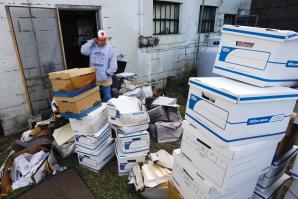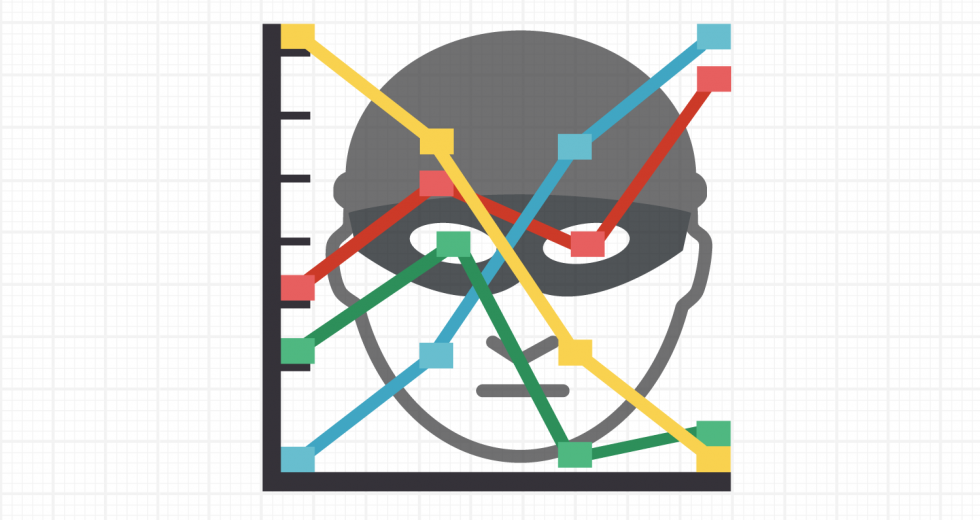In 2011, Jon Coss was on the hunt for funding. He had an idea for a system that could leverage Google Analytics to detect and prevent fraud and abuse in government programs. But this infrastructure-as-a-service model was new back then, untested and hard to explain to venture capitalists.
“They would ask me, ‘Are you a product company or a consulting company?’” recalls Coss, the CEO and founder of Folsom-based Pondera Solutions. “And we would say, ‘Both and neither.’”
Three years later, his “fraud detection as a service” invention has taken off, earning Coss the distinction of Next Tech Innovator of the Year by the Sacramento Regional Technology Alliance. His company also secured a contract to provide fraud detection for California’s Employment Development Department (which manages the state’s unemployment insurance program), starting in January.
Pondera Solutions uses Google’s massive data centers to find improper payments, incorrect addresses or other suspicious activity in government programs at the local, state and federal levels. It runs every single transaction through a series of models, comparing data sources to see if something doesn’t match up.
But the solution didn’t just create itself. Coss used his three-step “throw-them-in-a-bucket” strategy to develop his initial concept into something tangible:
- Identify a problem.
- Round up the usual experts.
- Get out of the way.
To solve the problem of unemployment abuse, he brought in experts in unemployment, fraud and Google. “They argue, discuss, disagree, but they come back with a solution,” he says. “This allows for out-of-the-box thinking with in-the-box realism.”
If the system detects potential fraud, it will send an alert to the client (department employees), highlighting the inconsistency. The idea is that the agency can then correct the discrepancy before or shortly after checks go out — rather than long after the fact — saving time, money and resources.
His company’s contracts range from $400,000 a year to millions. Pondera’s technology has been used in four states, and sometimes in multiple agencies within a state. Investors he went to in the early 2010s never came around. They were intrigued by the idea, Coss says, but didn’t understand government procurement and heard nightmares about how lengthy they were. With lack of investor funding, Coss and two partners funded the startup with their own money — a combined seven-figure investment. He refrained from disclosing the amount for competitive reasons.
“It takes a fair amount of money” Coss says. “We’re not building an app for the iStore that $100,000 might be able to fund.”
But Coss knew he had a winner. He has been in government technology for 20 years, including a decade at Oracle, working with the government to modernize its systems. The breakthrough for his fraud detection tool came during a visit to Google’s headquarters in 2011. He got a chance to see its newer products, such as geospatial tools and analytics software. After that, it was just a matter of overlaying these Google-powered solutions on government programs.
Recommended For You

Ladies, Let’s Get Started
Why women in Sacramento are making maker headlines
I’m a risk taker. Yet this is not so much about my nature, rather I attribute it to the ecosystem where I live and work, the mentors who have shown me the way, and about Sacramento’s new maker culture I find myself enveloped in — where permission to fail is encouraged.

Touchscreen to Table
West Sacramento to address food access with Code for America
Code for America works with cities around the country, using open-source software to improve the scalability and reach of government services. Starting next year, Code for America fellows will work with the Sacramento Area Council of Governments and the city of West Sacramento using technology to tackle issues related to health care and food access in the city.

Wide-Open Spaces
Banish the cubicles and fake ferns—Creative workers want customizable, collaborative workspaces
The old-school office style emphasized privacy and individual productivity. But the new model prioritizes the ideals of the creative class — that fast-growing, highly educated, well-paid segment of the workforce that values creativity, collaboration and the ability to customize.

All Wet
Would your vital documents be safe in the face of disaster?
On the Staten Island waterfront, long-time beloved Italian eatery Puglia by the Sea rises from the waves with floor to ceiling windows offering dramatic ocean views. White tablecloths sit foreground to a grand cherry-and-brass bar, and patrons regale over stately plated mussels, antipasto and filet mignon. Or, they did. Until Hurricane Sandy.




Comments
I WORK FOR PONDERA!